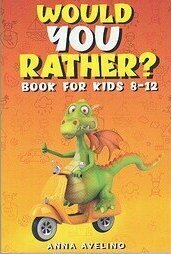
University Challenge: The Ultimate Questions: Over 3000 Brand-New Quiz Questions from the Hit BBC TV Show
Book
It's back! And this time it's the ultimate challenge, with over 3000 brand-new questions from the...

Treating Complex Trauma and Dissociation: A Practical Guide to Navigating Therapeutic Challenges
Lynette S. Danylchuk and Kevin J. Connors
Book
Treating Complex Trauma and Dissociation is the ideal guide for the front-line clinician whose...

Caring for People with Challenging Behaviors: Essential Skills and Successful Strategies in Long-Term Care
Book
The newly revised edition of this popular resource provides caregiving staff with easy-to-understand...

Sustaining Family Enterprise: Meeting the Challenges of Continuity, Control and Competitiveness
Book
Most people have a straightforward vision of the perfect family business. First, they hope for...
Computational Methods and Models for Transport: New Challenges for the Greening of Transport Systems: 2017
Pedro Diez, Pekka Neittaanmaki, Jacques Periaux and Tero Tuovinen
Book
This volume addresses challenges and solutions in transport and mobility of people and goods with...

Perspectives on Complex Global Challenges: Education, Energy, Healthcare, Security, and Resilience
William B. Rouse, Elisabeth Pate-Cornell and Charles M. Vest
Book
Examines current and prospective challenges surrounding global challenges of education, energy,...

The Creativity Challenge: Design, Experiment, Test, Innovate, Build, Create, Inspire, and Unleash Your Genius
Book
As seen on Inc.com Discover your "Aha" moment--right now! What's the best way to become more...

A Christian Guide to Environmental Issues: Connecting Bible Insights with Contemporary Challenges
Margot Hodson and Martin Hodson
Book
Environmental sustainability is a major issue in society today. While Christian response was...

Would You Rather? Book for Kids 8-12: 350 Challenging Questions, Silly Scenarios, and Hilarious Situations
Book
Why settle for a boring day when you can sprinkle it with the magic of laughter? This fantastic...

An Englishman Aboard: Discovering France in a Rowing Boat
Book
From the author of Pardon My French and A Certain Je Ne Sais Quoi, this is the charming and...
